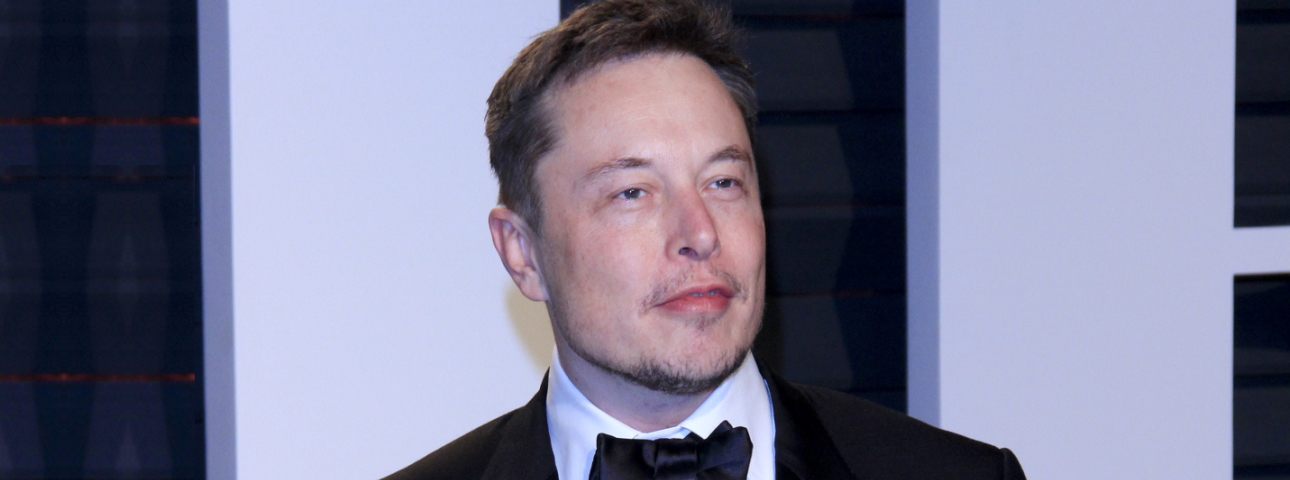Elon Must
Dreams of free content and equality are often highjacked and tightly controlled by wealthy people with a hearty appetite for attention.

Elon Musk | Shutterstock
Elon Musk is considered the technological prophet of our times. From Tesla’s self-driving cars, via the SpaceX missions and launches, to Neuralink and its vision of creating a computer interface with the human brain. So, what does he want with Twitter, and why has he agreed to pay such an inconceivably large sum in order to become its sole owner?
Well, the wealthy have always sought control over the media. Examples include William Randolph Hearst and Joseph Pulitzer at the beginning of the 20th century in the United States (on whom the character of Charles Foster in Citizen Kane was modeled); at the end of the 20th century, Robert Maxwell and Rupert Murdoch in Britain, Australia and the United States, and Silvio Berlusconi in Italy; and since the turn of the millennium, Sheldon Adelson in the United States and Israel, and Jeff Bezos, the owner of Amazon, who bought the Washington Post.
Musk, as usual, has taken things to the extreme—in terms of his wealth, the very public manner in which he led negotiations, the price of the acquisition, and the fact that this is the first time a digital platform with global influence has been bought. Even if Twitter is not the largest social network on the planet, it is the world’s digital town square, in which the leader of Iran and Donald Trump (before he was ousted) can scream into their megaphones, alongside journalists and opinion-leaders.
The interesting question is why the wealthy have always sought control over the media. The first and most simple reason is that they are looking for glamor and fame. Musk, with his 83 million followers on Twitter, is already famous enough, but he seems to be severely addicted to public attention.
The second reason is their desire to leverage control over the media, so as gain regulatory concessions for their other businesses. Musk’s life work is Tesla’s autonomous car, and getting it on the road will require considerable regulatory changes, every tiny element of which- will be worth billions to Musk. Controlling Twitter puts him in an advantageous negotiating position vis-à-vis the authorities over this regulation.
The third reason is to attempt to control public discourse for ideological purposes. Musk claims that he is a radical believer in free speech, and that there is no need for “community standards” on social media, since existing national legislation is sufficient. Such a statement is brazenly disingenuous.
First, what would happen if social media had no boundaries whatsoever? Would it attract mainstream internet users or the extremists on all sides? Would it become a toxic dumpster fire or the shining star of free speech? The large-scale social experiment conducted over the last decade tells us that the answer is disappointingly clear. Second, Musk is ignoring the fact that there is life outside the United States, and that Twitter also operates in countries whose laws do not allow much free speech. Third, he does not take into account the gap between the posting of content on social media and the state’s enforcement capabilities: from sexual harassment and fake profiles, through Holocaust denial, antisemitism, and incitement to terror, to anti-vaxxer disinformation. And fourth, Musk wants to hand over power back to the users, but does not address the question of the implications of a platform for self-expression that is privately owned by a single individual with the sole power to make decisions.
Which brings us to the fifth and most important issue: 2022 is set to be the year of government regulation over social media. The European Union announced hardline regulation last week; intensive discussions are being held in the United States; and here in Israel, committees are working on recommendations. Beyond the justified fear that democratic regimes might not be able to stand against the richest man in the world, it is worth asking what will happen if regulators were to accuse Musk of being responsible for incitement to terror, civil war, or genocide; for spreading fake news about a pandemic; or for sexual abuse of girls.
Elon Musk wants to be the prophet of the next generation and to expand the boundaries of our technological imagination. But in the case of Twitter, it may be that the prophet is not Musk but Tim Wu, professor of law at Columbia University who also serves as senior advisor to President Biden on technology. Over a decade ago, Wu in his book The Master Switch: The Rise and Fall of Information Empires, warned against falling into the trap of by the promise of social media. This is a vicious cycle: Platforms may begin in someone’s garage, but it does not take long before the dream of free content and the illusion of openness and competition are taken over, and tightly controlled by wealthy people with a hearty appetite for attention.
The article was published in the Jerusalem Post.
